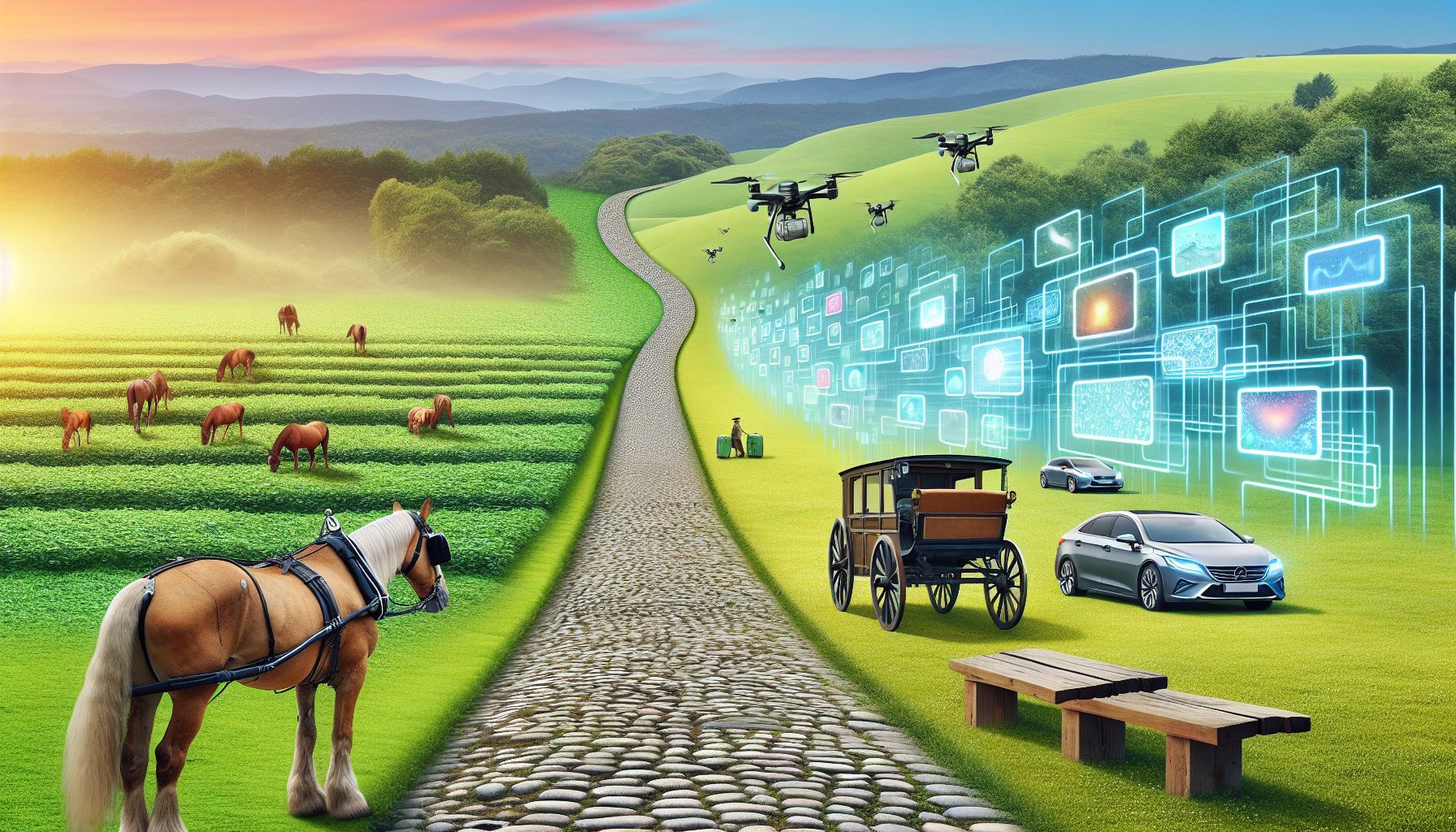We often picture travel as a voyage of self-discovery, an exciting leap into the unknown. The anticipation of uncharted terrains humming under our eager footsteps, resulting in both a geographical and personal shift in our compasses. Yet, as we traverse new physical and cultural landscapes, defining our journeys and plotting our routes, another dynamic landscape plays a vital role in these expeditions – the world of technology.
 Advancements in technology have left no stone unturned, pervading every aspect of our lives. Its impact on travel is significant and inescapably intertwined with our journeys. It illuminates paths, opens channels to immersive local experiences, smoothens breaks in communication, and ensures we can find our way even when our directional instincts betray us.
Advancements in technology have left no stone unturned, pervading every aspect of our lives. Its impact on travel is significant and inescapably intertwined with our journeys. It illuminates paths, opens channels to immersive local experiences, smoothens breaks in communication, and ensures we can find our way even when our directional instincts betray us.
One immediately noticeable way that technology improves our travel experiences is through the proliferation of travel apps. Mobile applications like Airbnb and Google Maps allow travelers to find accommodations, map routes, and explore local attractions with unprecedented ease. The age-old tradition of haggling with taxi drivers in foreign languages is fading due to apps like Uber and Lyft. The mounting anxieties often associated with travel logistics are appreciably alleviated, making the world a more accessible and welcoming place for everyone.
Adding to this, Social Media platforms have turned into virtual travel agencies themselves. With a plethora of travel bloggers sharing their experiences, hidden gems are exposed to global audiences. Instagram, for instance, inspires travelers with stunning images of exotic destinations and off-beat paths introduced by seasoned explorers. The reach and immediacy of information shared online create an inclusive and democratic platform, enabling users a peek into regions and cultures they might not traditionally have access to.
Yet, technology isn’t limited to only enhancing the travel experience. It’s also making profound strides in revolutionizing how we strive to preserve cultures, traditions, and the planet. Virtual Reality (VR) offers an immersive window into endangered ecosystems and ancient ruins, guaranteeing that even as we face the consequences of changing climates and civilizations, these invaluable insights will remain immune to the ravages of time and human wrongdoing.
As we make our historical leaps into the future, we can expect technology to continue reshaping our worlds and journeys. Advancements in fields like Augmented Reality (AR), Artificial Intelligence (AI), and blockchain could open new possibilities and complexities. While AR and AI could enrich the user experience further with custom curated tours and immersive histories – blockchain could revolutionize the booking process and transform how we perceive travel security.
However, amidst the enthusiasm for technological progress, we must remain cognizant of its potential pitfalls. We’re to grapple with inevitable ethical challenges related to data privacy, authenticity of experience, and the potential threats of digital dependency. It is crucial to strike a sensible balance between the tangible and digital worlds we navigate as we continue our pursuit of globetrotting dreams.
In conclusion, technology undoubtedly plays a pivotal role in our travel experiences – emboldening explorers, decentralizing information, and safeguarding our histories. It’s a fascinating symbiosis that invites us to conceive of our travels as more than just a physical journey, but also as a thrilling voyage through the evolving tech landscapes. As we stride into this compelling future, our journeys stand to become richer, more accessible, and infinitely more exciting. So, with our bags packed and smartphones charged, let’s embark on a journey like no other – for the world, as cliche as it sounds, is truly at our fingertips.


